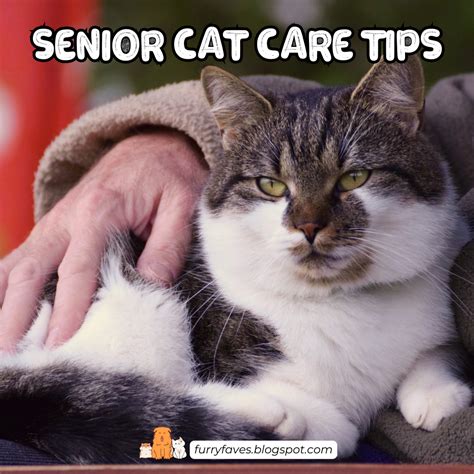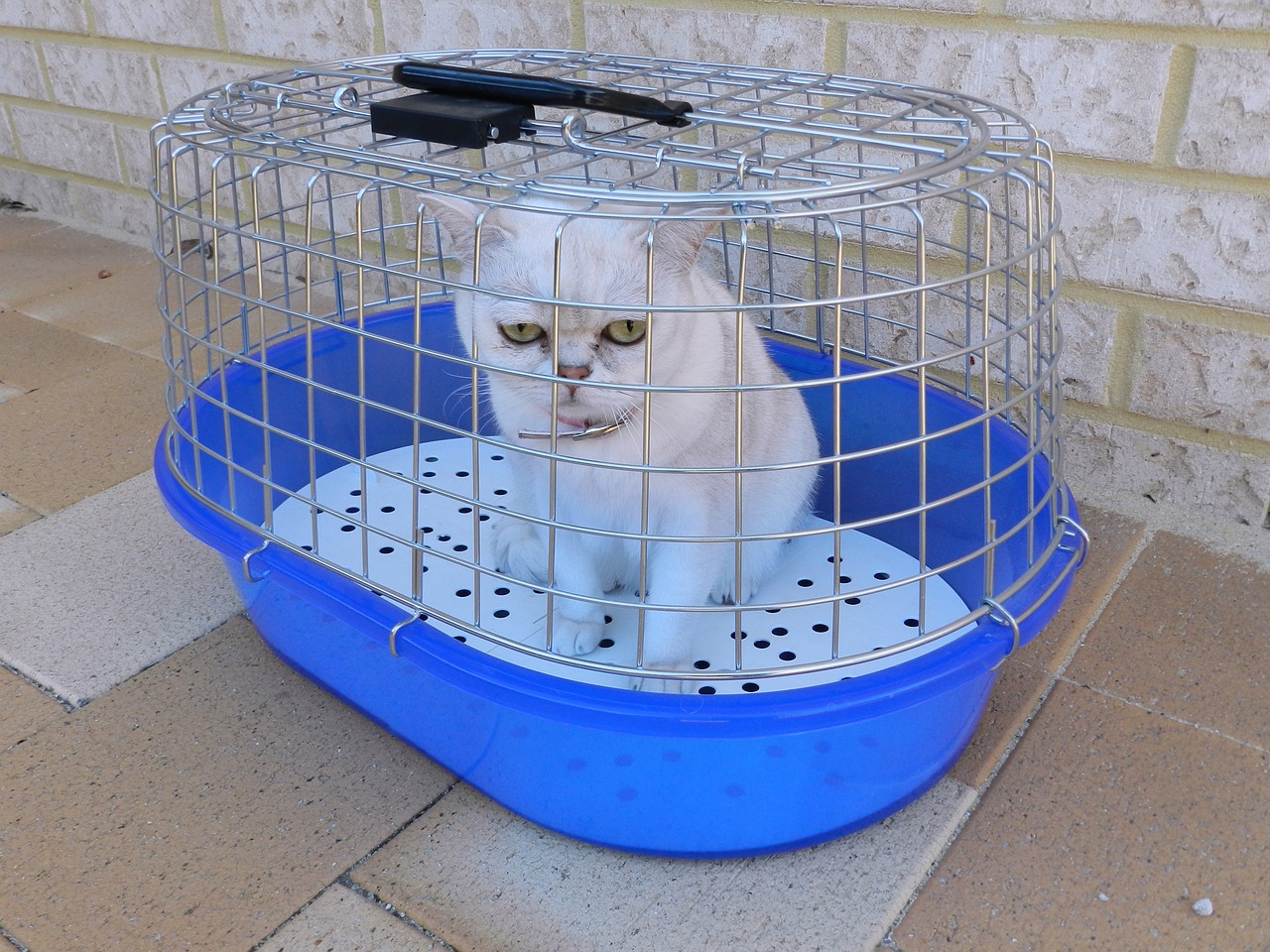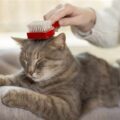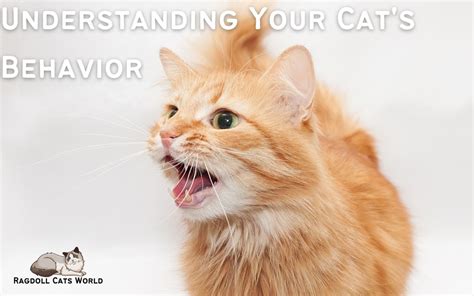Explore essential tips for caring for senior cats, including health check-ups, nutrition, living environments, and engaging activities to ensure their well-being and happiness.As our beloved feline companions age, their care needs evolve significantly. “Essential Tips for Keeping Your Senior Cat Happy and Healthy” is designed to guide cat owners through this important phase of their pet’s life. Understanding the unique needs of senior cats is crucial in ensuring they lead a fulfilling and comfortable life. From maintaining regular veterinary check-ups to adjusting their diet and creating a nurturing living environment, every small change can make a significant difference in their well-being. Additionally, incorporating engaging activities into their daily routine can keep them mentally stimulated and joyful. Join us as we explore practical strategies and insights that will help you provide the best possible care for your aging cat, ensuring they continue to thrive in their golden years.
Understanding The Unique Needs Of Senior Cat Care
As cats age, their physical and behavioral needs change significantly, requiring pet owners to adapt their approach to senior cat care. Understanding these changes is crucial to ensuring that your feline friend remains healthy and happy in their golden years.
One of the primary considerations in senior cat care is the recognition of age-related health issues. Senior cats are prone to conditions such as arthritis, dental disease, and kidney problems, which can affect their mobility and appetite. Regular monitoring and understanding of their health status can help in early detection and management of these issues.
Along with health considerations, it’s essential to cater to their adjusted activity levels. Senior cats may not engage in play as much as they once did. Providing low-impact toys and gentle interactive play can keep them stimulated without overwhelming them.
Diet also plays a vital role in senior cat care. Older cats have specific dietary needs that differ from those of younger cats. It’s important to choose high-quality, senior-specific cat food that meets their nutritional requirements while also accommodating any potential health issues.
Mental stimulation is key in keeping senior cats happy. Activities like puzzle toys, gentle grooming, and even new sensory experiences can help maintain their cognitive health. Always keep an eye on their behavior to ensure they are engaging positively with their environment.
By staying aware of these unique needs and changes, you can provide a loving and supportive home for your senior cat, enhancing their quality of life significantly.
Regular Veterinary Check-Ups For Senior Cats’ Health
As our feline companions age, their healthcare needs evolve, making senior cat care more critical than ever. Regular veterinary check-ups play a vital role in ensuring a senior cat’s health and well-being. These appointments are crucial for the early detection and management of common age-related health issues such as kidney disease, arthritis, and dental problems.
During these check-ups, veterinarians can perform comprehensive health assessments, including:
- Physical Examinations: A thorough physical exam to check for any lumps, bumps, or areas of discomfort.
- Blood Work: Routine blood tests to monitor kidney function, liver enzymes, thyroid levels, and blood sugar.
- Urinalysis: Analyzing urine samples to identify potential urinary tract infections or kidney issues.
- Weight Monitoring: Assessing weight changes can help address issues like obesity or malnutrition.
- Dental Check: Inspecting teeth and gums for signs of dental disease, which is common in older cats.
Regular veterinary visits not only help in monitoring your cat’s overall health but also offer an opportunity to discuss any behavioral changes. Changes in eating habits, lethargy, or unusual vocalizations can indicate underlying health issues. Your veterinarian can provide guidance on adjustments to your senior cat’s diet, exercise regime, and even behavioral enrichment tailored for their specific needs.
Scheduling bi-annual or even quarterly check-ups is often recommended for senior cats. These proactive measures can contribute significantly to a better quality of life in their golden years, reinforcing the importance of consistent veterinary care as a cornerstone of senior cat care.
Creating A Comfortable Living Environment For Older Cats
As our feline companions age, their needs change, making it essential to create a nurturing environment tailored to senior cat care. A comfortable living space can significantly enhance their quality of life, reducing stress and catering to their specific needs. Here are several key tips to consider:
- Soft Bedding: Provide a warm and soft bed in a quiet area. Older cats often experience joint pain or arthritis, so consider orthopedic options designed to support their bodies.
- Accessible Litter Boxes: Ensure that litter boxes are easy to access and cleaned regularly. Consider using low-sided boxes to make entry and exit easier for your senior cat.
- Safe Climbing Structures: While younger cats may enjoy climbing, older cats require stability. Look for low-profile cat trees and shelves that allow them to perch without straining.
- Temperature Control: Senior cats are more sensitive to temperature changes, so it’s important to keep their environment comfortable. Provide warm blankets in colder months and ensure there are cool spots available during the summer.
- Gentle Lighting: Consider the lighting in your home. A well-lit area that minimizes harsh glares can help prevent disorientation. Senior cats may struggle with vision changes, so softer, diffusion lighting is beneficial.
Remember that calming scents, such as catnip or pheromone diffusers, can create a peaceful atmosphere. By focusing on these elements, you can significantly improve the overall comfort level and happiness of your senior cat, effectively embracing the principles of senior cat care.
Nutrition Tips For Optimal Senior Cat Care
Ensuring proper nutrition is crucial for senior cat care, as older cats have different dietary needs compared to their younger counterparts. Here are some key tips to help you provide the best nutrition for your senior feline friend:
- High-Quality Protein: Senior cats require protein to maintain muscle mass. Opt for high-quality protein sources, such as real meat or fish, listed as the first ingredient in their food.
- Moisture-Rich Foods: Dehydration can be a concern for senior cats. Incorporating wet food into their diet or providing a constant supply of fresh water can help maintain proper hydration.
- Adjust Caloric Intake: As cats age, their metabolism slows down. Monitor their weight and adjust caloric intake accordingly to prevent obesity, which can lead to other health issues.
- Specialized Senior Diets: Consider feeding your senior cat a diet specifically designed for their age group. These formulations often include ingredients that support joint health, digestion, and a healthy heart.
- Consult your Veterinarian: Always discuss any dietary changes with your veterinarian, especially if your cat has underlying health issues. They can provide tailored advice suited to your cat’s unique needs.
By being attentive to their nutritional requirements, you can significantly enhance your senior cat’s quality of life, ensuring they remain happy and healthy in their golden years.
Engaging Activities To Keep Senior Cats Happy
Keeping your senior cat active and mentally stimulated is essential for their overall well-being. As they age, their activity levels may decline, but that doesn’t mean they don’t enjoy playtime. Here are some engaging activities beneficial for senior cat care:
- Interactive Toys: Provide toys that encourage gentle play, such as feather wands or laser pointers that invite your cat to pounce and chase, helping keep them physically active.
- Puzzle Feeders: Stimulate your senior cat’s mind by using puzzle feeders that require them to work for their treats. This not only keeps them occupied but also promotes mental sharpness.
- Gentle Playtime: Incorporate short sessions of play using soft balls or crumpled paper. This will prevent overexertion while ensuring they still enjoy their favorite activities.
- Cat Trees and Scratching Posts: Encourage climbing and scratching. Providing a sturdy cat tree can allow your senior cat to exercise and fulfill their natural instincts in a safe way.
- Sunbathing Spots: Set up comfortable spots near windows where they can bask in the sun. This is a low-energy way to keep them engaged with their environment and enjoy some warmth.
- Social Interaction: Spend quality time with your senior cat. Simple activities like petting, grooming, or talking to them can help strengthen your bond and boost their happiness.
By integrating these activities into your routine, you can promote not only physical health but also mental well-being, ensuring a fulfilling life for your senior feline friend. Remember, the key to successful senior cat care is understanding their limitations and adjusting activities accordingly.
Frequently Asked Questions
What are the signs of a happy senior cat?
A happy senior cat usually displays behaviors such as purring, playing, grooming themselves, and engaging with their owners. They may also find cozy spots to rest and have a healthy appetite.
How often should I take my senior cat to the vet?
Senior cats should have veterinary check-ups at least twice a year. Regular check-ups help monitor health issues common in older cats, such as dental problems and kidney disease.
What dietary changes should I consider for my senior cat?
Senior cats often require a diet higher in protein and lower in calories to maintain their weight. Look for foods specifically formulated for senior cats, which may also have added nutrients to support joint health.
How can I encourage my senior cat to be more active?
To encourage activity, you can provide interactive toys, laser pointers, and short play sessions tailored to your cat’s energy level. Creating stimulating environments and sometimes introducing new toys can help engage them.
What environmental adjustments can I make for my senior cat?
Consider adding ramps or steps to help your senior cat reach high places without straining themselves. Also, ensure their litter box is easily accessible and has low sides, and provide warm, soft bedding to accommodate their needs.
Is it normal for senior cats to sleep more than younger cats?
Yes, it’s normal for senior cats to sleep more, as they require more rest for recovery and overall health. However, if you notice a sudden increase in sleep or lethargy, it’s important to consult with a veterinarian.
Can I give my senior cat supplements for joint health?
Yes, you can consider supplements such as glucosamine and omega-3 fatty acids, which may help support joint health. However, always consult your veterinarian before introducing any new supplements to ensure they are appropriate for your cat.











